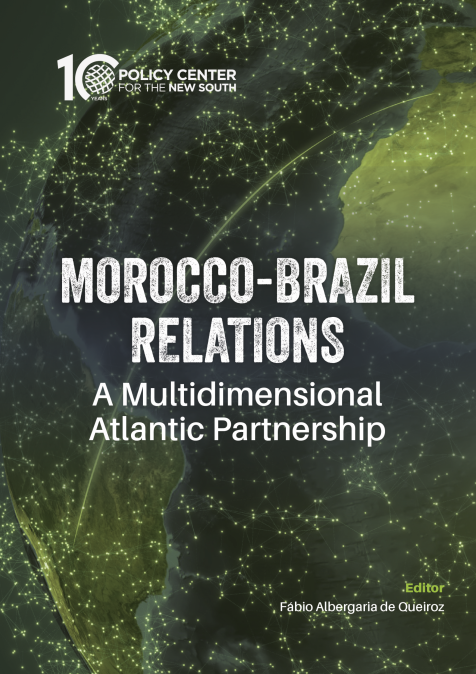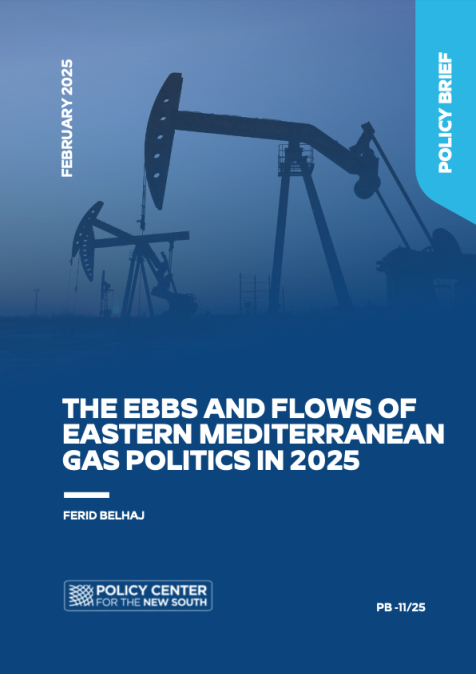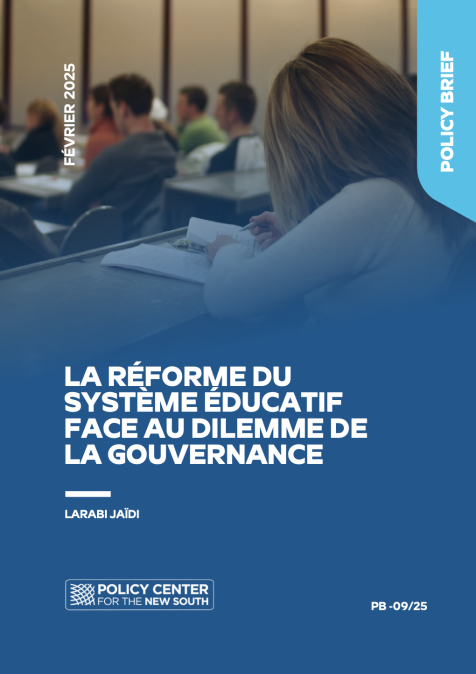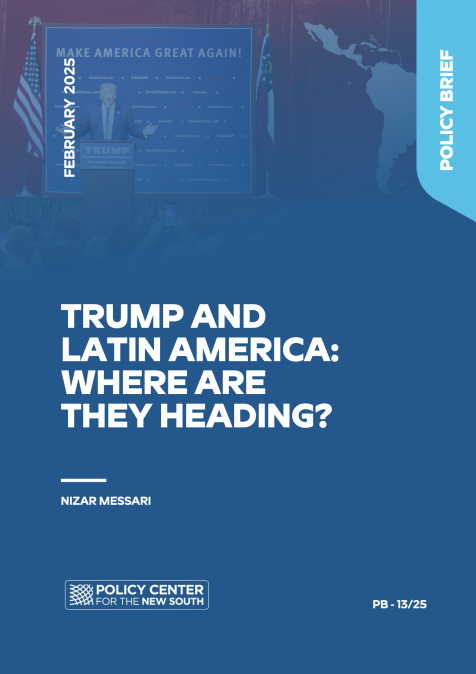Publications /
Opinion
The need for infrastructure is enhanced by the willingness of citizens to live decently through an increased access to electricity, water, roads and education. The high cost of transactions in Africa highlights the urgency to upgrade infrastructure, support the expanding economies and foster regional integration. Adequate infrastructure provision is thus considered a key prerequisite for the continent to achieve the intended objective of economic growth- and trade liberalization in particular (Ajakaiye & Ncube, 2010). From an economic perspective, public investment, particularly in infrastructure, is rather a means than an end in itself. It aims to increase private capital formation leading to wealth creation and prosperity (Agénor, Bayraktar & El Aynaoui, 2005). Several empirical studies have revealed the positive spillover effects of public infrastructure capital on the demand and supply for private inputs and outputs in the case of some industrialized countries (Demetriades & Manuneas, 2000). Conversely, in Latin America for instance, the lack of investment in infrastructure during the 1980s and 1990s, particularly in roads, telecommunications, and power generation capacity, had detrimental impacts on productivity, production costs and private investments, which in turn undermined output growth (Calderón & Servén, 2002).
Closing Africa’s infrastructure gap in the power and transport sectors holds important benefits for growth and development
Meeting Africa’s infrastructure needs and developing cost-effective modes of infrastructure service delivery call for a substantial investment program. Despite great progress made in telecommunication coverage in the past 25 years, Africa still lags behind other developing regions of the world. Therefore, narrowing the infrastructure gap holds large potential in terms of economic growth. The largest potential growth benefits would come from closing the gap in the power sector, which is Africa’s largest infrastructure deficit. Indeed, power generation capacity remains weak. Nearly 600 million people lack access to electricity, and millions more are connected to an unreliable grid that does not meet their daily energy service needs. In fact, electricity generation capacity in Sub-Saharan Africa is among the lowest in the world. It has not changed between 1990 and 2012 and is about 0.04 megawatts (MW) per 1,000 people. As a comparison, East Asia and the Pacific registered the fastest growth in power generating capacity over the past two decades, jumping from 0.15 MW per 1,000 people in 1990 to 0.84 (Africa’s Pulse, 2017). Therefore, the challenge now is to catch up in terms of electricity coverage in order to ensure inter and intra-country interconnection.
In this sense, Africa has a huge untapped energy potential, and much of it comes from renewable energy. Morocco for instance has launched important projects of power generation capacities both for solar and wind to diversify its energy mix. In 2015, new renewable energy generation installations in Morocco reached a capacity of 800 MW while new projects should add considerably to this capacity, reaching 2 GW by 2020 (Rim Berahab, 2017). In addition, the African Development Bank, in 2011, approved more than $400 million investment for various energy related infrastructure projects, including $25 million for the KivuWatt Project in Rwanda (methane gas extraction and power transformation), $64 million for Kribi Power in Cameroon (natural gas) and US $38 million for Thika Power in Kenya (electrical power plant).
Africa’s second infrastructure deficit is found to be transport network, which is rather sparse, compared to the size of the continent, meaning that Africa’s fast-growing cities are continuously affected by increased congestion. Furthermore, medium- and long-distance national and regional corridors need to be developed in order to allow connectivity between major urban and industrial centers, not only within a country but also across borders. In fact, Africa is one of the regions that traded less with itself compared to East Asia or Latin America. It is also one of the most fragmented continents, with companies operating in small domestic markets that do not ensure building economies of scale and achieving international competitiveness. The severe lack of infrastructure is generally the element that analysts tend to blame for driving up the cost of trade between African countries. Neighboring countries in the continent often have higher trade costs with each other than with some more distant economies. The big push for transport infrastructure investment could thus create virtuous dynamics for all actors involved and trigger an accelerated development process by promoting both downstream and upstream integration for many industries.
New platforms of investment can play a crucial role in closing Africa’s infrastructure deficit provided that Africa improve its business environment
The current financing mechanism for infrastructure in Africa can be grouped in two categories: Domestic funding and external funding. The first category covers mainly government budget allocations, which are not sufficient to close the infrastructure gap. Hence, the growing role of the private sector. However, despite some progress in recent years, the share of the private sector in financing infrastructure in Africa is still low in comparison to other regions of the world. In Sub-Saharan Africa more specifically, it accounts for less than 4 percent of the total financing, which is significantly below the rate of other low- and middle-income countries (Jamal Saghir, 2017). One reason for that could be that large infrastructure projects are risky since they have high upfront construction costs, are long-term, and can be vulnerable to changes in countries’ policy and regulatory environments. This means that private investors tend to be reluctant to commit.
New platforms of investment have emerged in recent years to address this issue such as Public Private Partnerships (PPP) and can help on two important fronts, namely the financing and origination of infrastructure projects. However, in order for it to be effective, African countries need to meet some requirements to increase their attractiveness to private investors. Examples include, but are not limited to, political stability, a continuous pipeline of bankable projects, equitable sharing of risks with the public sector and certainty of the envisaged future cash flows. Besides, the diversity of infrastructure projects across countries in Africa has led to a lack of standardization, which has become a major barrier to the scaling up of infrastructure investment into assets. One way to address this is through securitization techniques, which offer a set of advantages like diversification for investors, lower cost of capital, as well as higher liquidity (Arezki, Bolton, Peters, Samama & Stiglitz, 2016).
The external financing mechanism on the other hand includes Official Development Financing (ODF), Private Participation in Infrastructure (PPI) and financing from other countries. In this regard, several emerging economies, comprising China, India, and the Gulf states, have begun to play an important role in financing Africa’s infrastructure. China is by far the largest player. Its investments accounted for 25 percent of the total investment in the continent in 2015 ($83.4 billion), covering more than 35 African countries, and is geared toward large-scale infrastructure projects, focusing mainly on power (energy) and transport sectors (Sy and Copley, 2017). Although China targeted mainly resource-rich countries in the 2000s, since 2010 they have interestingly broadened their focus to non-resource-rich countries. The external finance can nevertheless be debt generating. The low level of saving rates, coupled with the lack of effective financial system able to tap into the unused domestic resources, leave no options for the local authorities than moving towards international markets. The overreliance on these external resources may entail risks in the long run, in case the right macroeconomic policy is not put in place to mitigate implications over the macroeconomic stability.
As a conclusion, in order to achieve more growth, Africa needs to improve its business environment and make a real effort on infrastructure development. Investors need to find reliable partners in Africa to allow the continent to unlock solid opportunities for proven profitability. Development Financial Institutions (DFIs) could bring a significant input to this issue by paving the way for a viable engagement of long term-investors. Given their flexibility and expertise in infrastructure projects, they could contribute to further reduce risks by providing guarantees, concessional funding, coordination mechanisms, and adapted insurance skims for investors. Moreover, DFIs provide strong alternatives to state-managed initiatives. By the provision of financing to private sector entities, they can produce direct contributions with wider development impacts (Runde, 2017). Consequently, this would establish better governance leading to a better environment for business that attracts massive investments.








